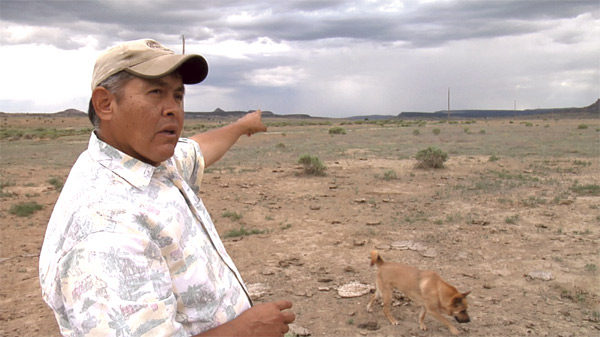Navajo Group Fights Aquifer Mine


Larry J. King stands behind his house in Church Rock, N.M., and talks about the site where Hydro Resources, Inc. intends to mine.
Courtesy of Red Rock Pictures




